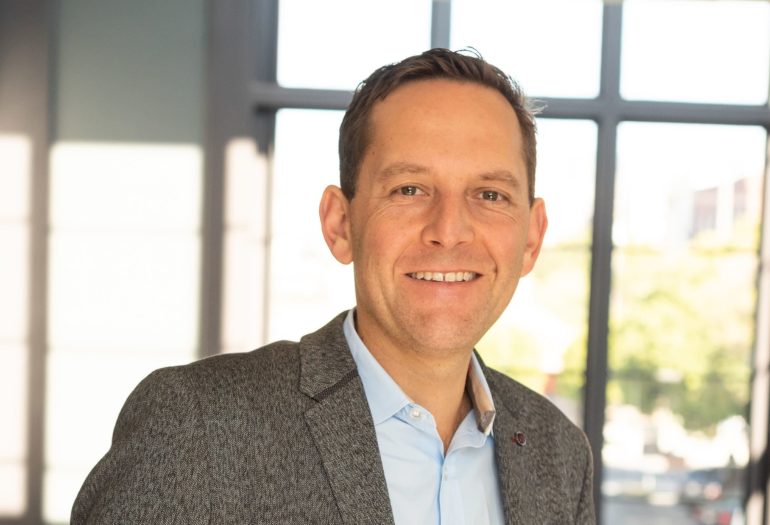David Friedberg is known in Silicon Valley as an early Google executive who started farming insurance company Climate Corporation and sold it to Monsanto for $1 billion in 2013.
More recently, Friedberg has gained the nickname Queen of Quinoa on the popular All-In podcast with investors Jason Calacanis, Chamath Palihapitiya and David Sacks. The lifelong vegetarian earned the nickname when he purchased Canadian quinoa supplier NorQuin in 2014.
Friedberg remains board chairman at NorQuin and is chair of Metromile, a software-powered auto insurance provider that he started a decade ago and took public through a special purpose acquisition company earlier this year.
But he’s spending the bulk of his time on a project he started four years ago with the help of old friend and Google co-founder Larry Page.
After leaving Monsanto in 2015, Friedberg began talking with Page about a way to build and finance a whole new batch of start-ups focused on agriculture technology, sustainability and advancements in life sciences. He didn’t want to return to Google, so Page — through parent company Alphabet — agreed to help finance a holding company that Friedberg would operate.
Friedberg launched The Production Board in 2017. He’s now revealing Alphabet’s and Page’s involvement for the first time.
The company, which Friedberg describes as a venture foundry, just raised $300 million from Alphabet along with investors including Baillie Gifford, Allen & Co., BlackRock, Koch Disruptive Technologies and Morgan Stanley’s Counterpoint Global.
While Page was the initial Alphabet sponsor, Friedberg said the Google co-founder hasn’t been involved in the company for a while. Alphabet’s Anil Patel, who leads investments for the Other Bets segment, is on TPB’s board.
TPB is an investment company, but it’s not set up as a venture fund. That means Alphabet and other outside investors own shares in the parent entity but not the portfolio companies. They only get liquidity if TPB goes public or gets acquired.
“If one of our companies were to go public or get sold, we don’t take that capital and distribute it back to our shareholders,” Friedberg said in an interview this week. “It stays on the balance sheet and we keep building.”
No shortage of problems
Friedberg said neither he nor his investors need money, but they’re all trying to find solutions to some of the planet’s gravest existential challenges. With climate disasters emerging across the globe and more parts of the world becoming uninhabitable, TPB is investing in science and research to create new systems for food, agriculture and health.
“At least for my lifetime, I don’t think there’s going to be any shortage of problems and opportunities to go after,” the 41-year-old Friedberg said. “If we have a liquidity event, we should be able to recycle that capital and use it for new work.”
Friedberg said TPB has only 15 employees but its companies have hundreds of workers combined. His strategy is to hire top scientists, follow research trends for breakthroughs in genomics and life sciences and then fund R&D to determine if his team can develop a marketable product.
If there’s a business opportunity, TPB will spin the company out and give it a CEO, management team and lab space, while still offering centralized services for legal, human resources and finance. Some of the companies have raised additional capital from other venture investors.
“They can focus on getting a product built or getting product-market fit, and then over time as they mature, we start to hand some of those operating functions off so they can operate independently,” Friedberg said.
TPB’s existing investments include Soylent, the meal replacement beverage and nutrition company, and bioreactor lab Culture Biosciences.
In a blog post Friday announcing the new investment, Friedberg is naming five foundry companies that TPB launched and turned into businesses. They include Pattern Ag, which is using precision engineering to help farmers make their land more productive; UR Labs, which makes a meal replacement shake to help people with diabetes lower their blood sugar; and Ohalo Genetics, a company using gene-editing tools to breed plants that use less land and water.
TPB also started Triplebar, a company using biotechnology to try to make food production, processing and packaging more sustainable. To run Triplebar, Friedberg teamed with Jeremy Agresti, a scientist and former Harvard fellow whose research was central to the creation of 10x Genomics.
Friedberg said seeking out and recruiting talent is a major part of his job.
“I love science,” he said. “Finding awesome scientists and trying to convince them to do this work is fun for me and a good use of my time.”
Along with hiring and raising capital, Friedberg has also been busy working on a SPAC. In February, he filed a prospectus for a blank-check company called TPB Acquisition, with plans to raise $250 million. He later reduced the target to $200 million.
The SPAC is looking for companies in the same markets that interest TPB. According to the filing, the transaction could even merge one of TPB’s businesses with another company.
“We will not, however, complete an initial business combination with only TPB or a portfolio company of TPB,” the filing said.
The SPAC hasn’t started trading or announced a deal, and Friedberg said he can’t talk about it at the moment.
WATCH: How the Western ‘megadrought’ could cause more ‘water wars’



